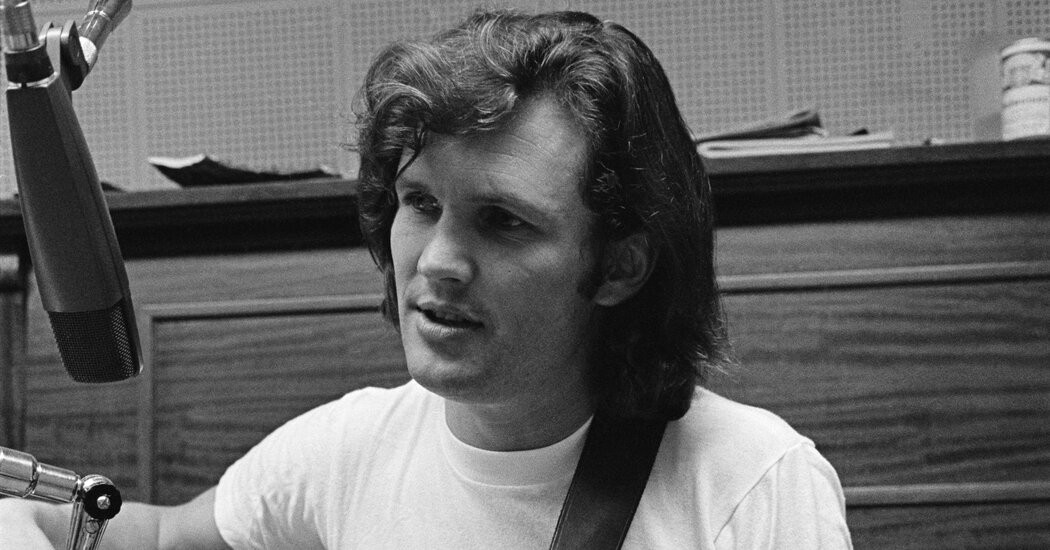

The singer, songwriter and actor, who died on Saturday at 88, found his way into situations and tales that underscored his role as a conscience for country music.
Kris Kristofferson was a man to whom myth attached easily.
Did he once take control of a National Guard helicopter so he could land it at Johnny Cash’s house to present him with some songs to consider recording? (He sure did, though Johnny apparently wasn’t home.) Did he not know that Janis Joplin, whom he’d been dating, had recorded his song “Me and Bobby McGee” just a few days before her death? (He didn’t; the track, released posthumously, became her lone No. 1 hit.) Did he once confront Toby Keith, country music’s jingoist in chief, about his performative bluster and ask him, “Have you ever taken another man’s life and then cashed the check your country gave you for doing it? No, you have not.” (Depends whose account you believe.)
Beginning in the mid-1960s, when he arrived in Nashville as an aspiring songwriter, Kristofferson, who died Saturday at 88, evolved into something of a communal conscience for the town, and the country music business, while also helping to usher it into conversation with the rest of popular music.
He was best known as a songwriter, with compositions that bridged folky earthiness with a jolt of literary flair. When sung by some of the biggest country stars of the era — Cash, Ray Price, Roger Miller, Ray Stevens, Bobby Bare — they inexorably moved the genre away from polished and poised singers in sports coats toward thornier territory closer to the folk revival of the 1960s.
The protagonists of Kristofferson’s best songs were downtrodden victims of their own poor decisions — “Sunday Mornin’ Comin’ Down,” the best-known version of which was sung by Cash, finds the singer struggling to find “my cleanest dirty shirt” the morning after a Saturday night bender. “Once More With Feeling,” written with Shel Silverstein and sung by Jerry Lee Lewis, tells the story of a relationship that’s run out of gas through the pleas of a man desperate to be deceived, even for a moment: “Darling, make believe you’re making me/Believe each word you say.”
“Me and Bobby McGee” — initially recorded by Miller, but rendered indelible by Joplin — was the tale of two drifters who drift away from each other, anchored in the oft-repeated secular proverb, “Freedom is just another word for nothing left to lose.”